Alan Huffman Quotes & Sayings
23 most famous Alan Huffman quotes and sayings (author). These are the first 10 quotes we have.
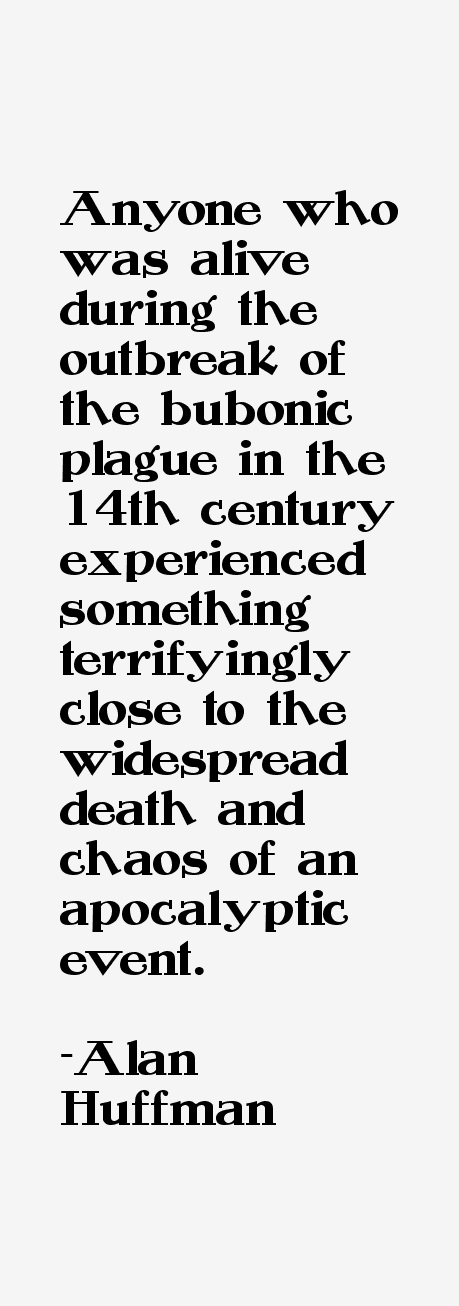
“Anyone who was alive during the outbreak of the bubonic plague in the 14th century experienced something terrifyingly close to the widespread death and chaos of an apocalyptic event.”
“When President Teddy Roosevelt posed for the cameras astride a massive steam shovel during construction of the Panama Canal in 1906, it was more than a simple photo op. Though the scene was clearly staged, it symbolized a crucial moment in American history.”
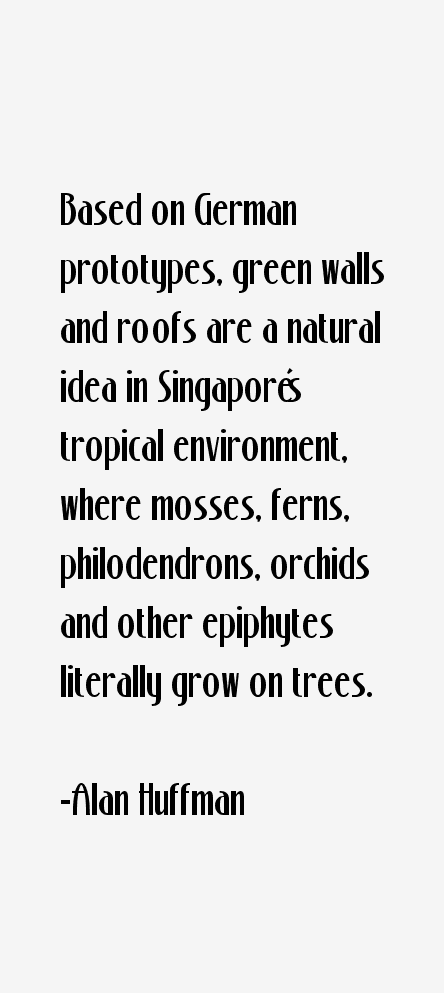
“Based on German prototypes, green walls and roofs are a natural idea in Singapore's tropical environment, where mosses, ferns, philodendrons, orchids and other epiphytes literally grow on trees.”
“In our quest to define and describe the world, we have crisscrossed the oceans and continents, compiling exhaustive knowledge about its life forms and features, and extended our physical reach through technology, which provides us instantaneous and pervasive access to information about seemingly everything.”
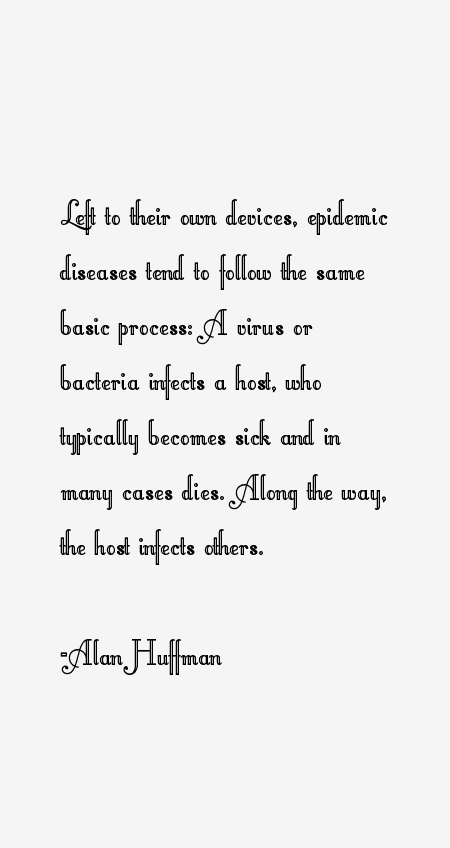
“Left to their own devices, epidemic diseases tend to follow the same basic process: A virus or bacteria infects a host, who typically becomes sick and in many cases dies. Along the way, the host infects others.”
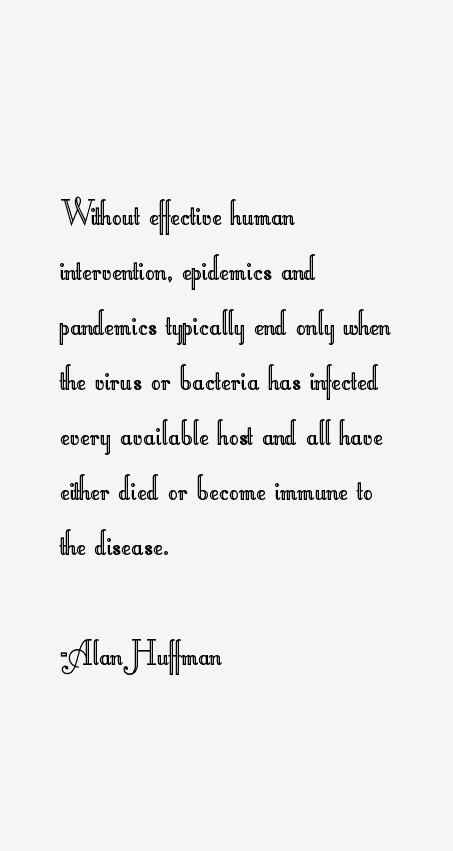
“Without effective human intervention, epidemics and pandemics typically end only when the virus or bacteria has infected every available host and all have either died or become immune to the disease.”

“Architecture students are generally given theoretical projects, often located at distant locations, and told to come up with a design.”

“Life feels more vivid in a conflict zone. It is clear what matters, and who you can count on, for what.”
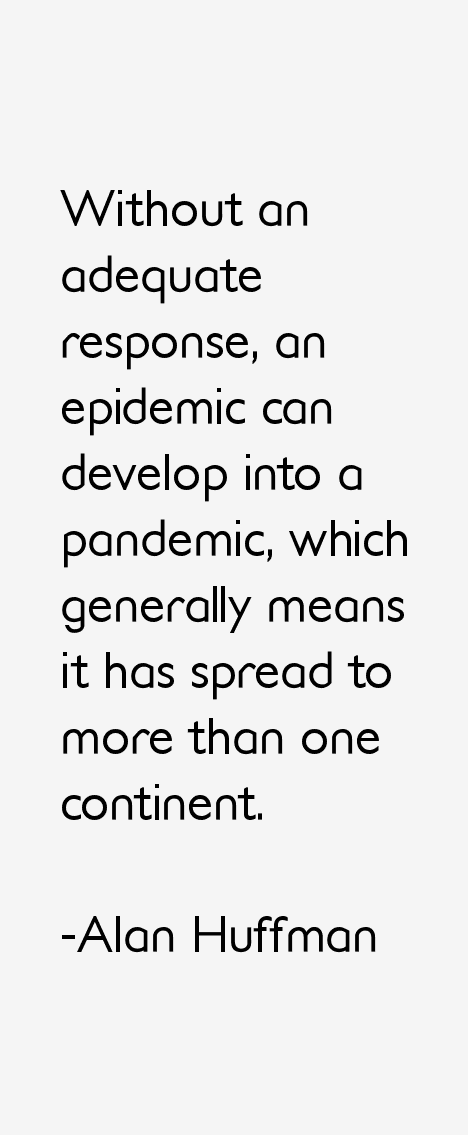
“Without an adequate response, an epidemic can develop into a pandemic, which generally means it has spread to more than one continent.”
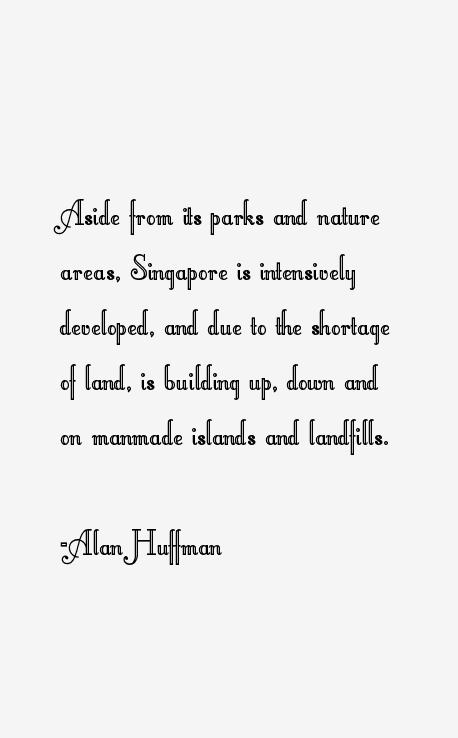
“Aside from its parks and nature areas, Singapore is intensively developed, and due to the shortage of land, is building up, down and on manmade islands and landfills.”
Alan Huffman Quotes Rating
No Ratings Yet
Leave A Comment
























